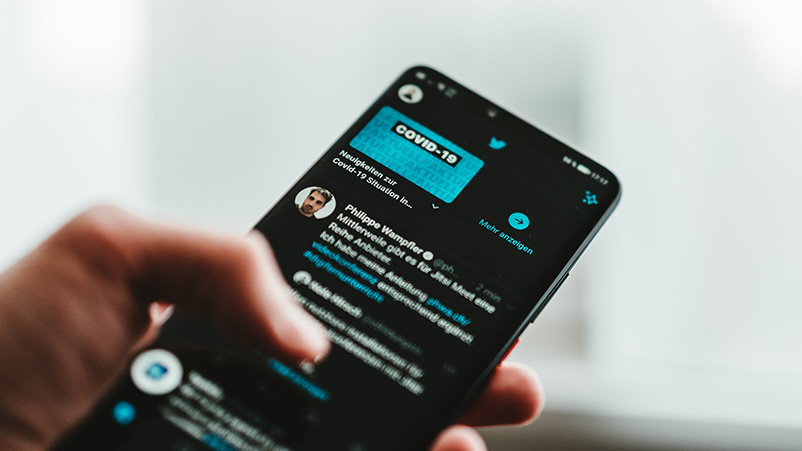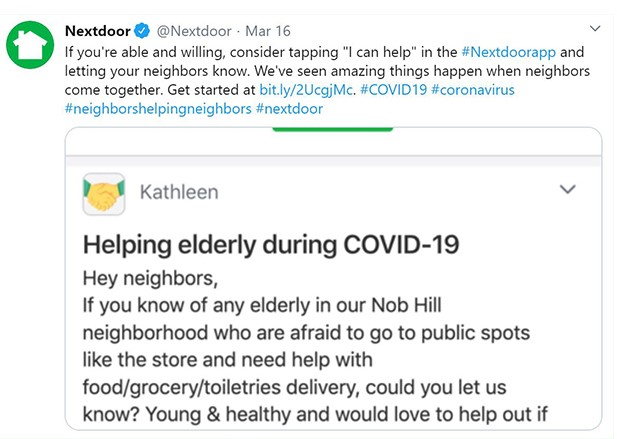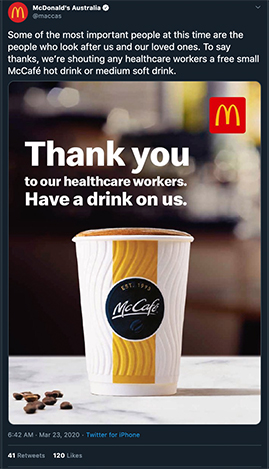This is not a marketing opportunity: Twitter’s tips

Twitter’s purpose is to serve the public conversation, and in these trying times our work has never been more critical. People often turn to Twitter in times of crisis, and as COVID-19 develops we’re seeing a meaningful increase in use of the platform to stay informed.
In the past few months there have been millions of Tweets globally related to the crisis, with a COVID-19 Tweet shared every 45 milliseconds. This wave of conversation has driven a 23% rise in mDAU’s compared to this time in 2019, as people seek credible information from experts in real-time, alongside human connection, whilst in isolation.
The coronavirus pandemic represents unchartered territory for businesses. Companies are being challenged on multiple levels with consumers asking questions not just about their advertising, but also about their core values, how they treat their employees and factory workers, and how they’re contributing to the cause.
Twitter provides consumers with a direct line to brands, and naturally consumers use that to question and challenge them. The coronavirus pandemic also offers an opportunity for brands to rise to the occasion and make a memorable impact. With that in mind, we’ve compiled 6 key areas for brands to consider when navigating this new environment, to best support their customers:
Know your brand
This is about understanding the unique role your brand plays in people’s lives, how that has changed, and how your brand can help or be useful during this crisis. It’s also about looking for opportunities to lead by example, and do the right thing, where it makes sense for your business. We saw this first hand from Woolworths when they implemented a dedicated shopping hour for the elderly and disabled to improve their access to essential goods.
Community & Positivity
Throughout history, even through the toughest of time, humans have always sought out connection. Social distancing measures offer protection and security but they can take their toll on us personally. People on Twitter have been finding unique ways to connect In the face of home quarantining.
We’ve witnessed beautiful moments of connection emerge showing the importance of positivity and connection right now, whilst brands like Nextdoor are helping communities connect, whether for essential groceries or just a friendly chat.
Positive stories are capturing people’s attention as people look for lighthearted moments to connect with. If you want to share some positivity with your customers, focus on human stories, rather than business achievement — think a story of how a customer overcame adversity rather than smashing your sales targets.

Anticipate changes in your customer’s behaviour
As people are asked to self-isolate, there are a number of behaviour changes that might impact their needs as well as how they interact with your business. A few trends we’re seeing in different parts of the globe:
- Increased shift to e-commerce. For retail brands, get ahead of this by ensuring you’re prepared to support the changing needs and communicate with customers about what’s available and how you’re managing deliveries.
- Significant boom in live-streaming. As events were cancelled and retail stores were closed in China, people and businesses took to live-streaming. Knowing this may happen elsewhere, think about how going live could help you extend planned live events (without attendees present), or connect with your customers.
Customer Service & Support
Inevitably, some brands are immediately more impacted by COVID-19, due to the nature of their business. Travel and Finance Institutions are seeing the strongest associations with COVID-19 so far. If COVID-19 is directly affecting your business and your customers, use Twitter to interact 1:1 with your customers and support them in a meaningful way.
Even if you’re not brand is perhaps not directly affected, you might be able to offer something heartfelt that goes beyond communicating your position and drives real impact with those on the frontline of the COVID pandemic, such as Maccas offer to key healthcare workers.

Tone of Voice
Be thoughtful with copy and tone, but also remember it’s still okay to make jokes.
When the newscycle is overwhelming, a bit of light distraction and entertainment can go a long way. Ask yourself if the joke is bringing light or making light of a difficult situation. Virgin Australia and Stan both helped the Twitter community have a laugh when peak toilet paper hoarding hit supermarkets across the nation.
Accurate & Reliable Information
One of the biggest priorities for Twitter during the pandemic is ensuring the flow of credible information on the platform. It’s worth noting that 75% of COVID-19 related Tweets are actually Retweets. In other words, people are likely looking for authoritative voices to share during times of crises.
That said, if you have useful and reliable information that might help people navigate the uncertainty, or keep people calm, you should share it. For example, if you’re operating in e-commerce, now is the time to keep the public updated on stock and delivered to help mitigate panic buying.
In these extraordinary times, your brand can be a source of connection and community. Stay positive, be empathetic, and listen listen listen (even more than usual).
